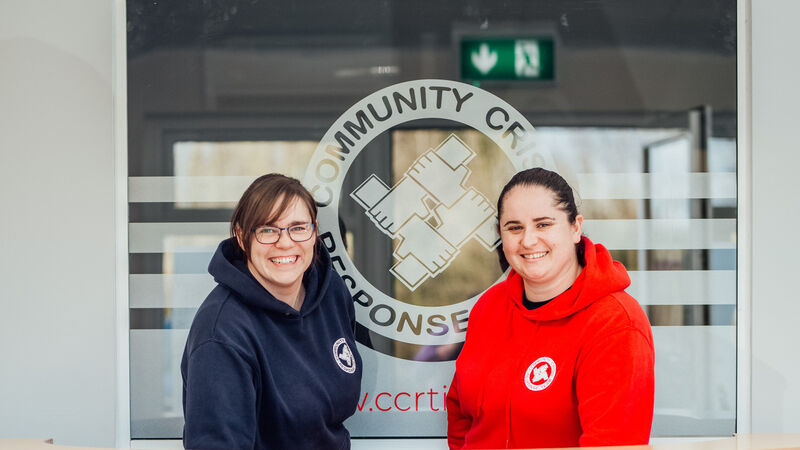Limerick's frontline suicide volunteers seek Covid vaccine

Kayla Doyle and Caitriona McMahon of Community Crisis Response Team in Rathkeale. Picture: Brian Arthur
A volunteer service that travels to people in suicidal distress has had to revert to operating a crisis line only due to Covid-19.
The Community Crisis Response Team (CCRT), based in Rathkeale, Limerick, operates an out-of-hours crisis line from 5pm to 6am, 365 days a year, responding to calls from people who are in suicidal distress or from those who believe someone they know is in suicidal distress.













